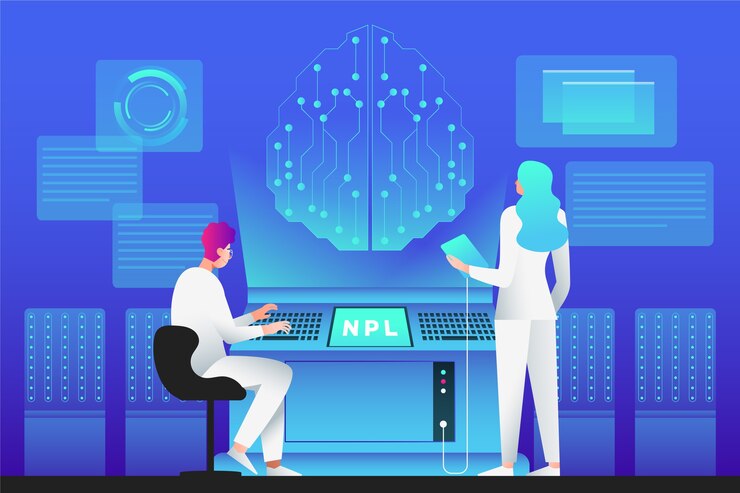
The landscape of technology is constantly evolving, and two of the most exciting and transformative emerging technologies are Artificial Intelligence (AI) and Quantum Computing. Both of these fields are poised to revolutionize industries, drive innovation, and redefine our interaction with technology. This article delves into the impact, applications, and future potential of AI and Quantum Computing.
Artificial Intelligence (AI): The Catalyst for Digital Transformation
Artificial Intelligence (AI) represents a significant leap forward in technology, allowing machines to simulate human intelligence and perform tasks that traditionally required human intervention. AI is transforming a wide range of sectors by enhancing efficiency, personalization, and decision-making.
- AI Applications Across Industries AI is being leveraged across various industries to drive innovation and efficiency.
- Healthcare: AI enhances medical diagnostics and treatment through advanced data analysis and machine learning algorithms. For instance, AI-powered systems can analyze medical images, predict patient outcomes, and assist in drug discovery. AI is also used in personalized medicine to tailor treatments based on individual genetic profiles.
- Finance: In the financial sector, AI is used for predictive analytics, fraud detection, and customer service automation. AI algorithms analyze market trends, detect anomalies in transactions, and provide personalized financial advice, thus improving decision-making and operational efficiency.
- Retail: AI transforms retail by providing personalized shopping experiences through recommendation engines and chatbots. AI systems analyze consumer behavior to offer targeted promotions, manage inventory, and optimize supply chains.
- AI Technologies and Techniques Several key technologies and techniques underpin the advancements in AI.
- Machine Learning: Machine Learning (ML) is a subset of AI that involves training algorithms to learn from data and make predictions or decisions. Techniques such as supervised learning, unsupervised learning, and reinforcement learning are employed to improve accuracy and performance.
- Natural Language Processing (NLP): NLP enables machines to understand and interact with human language. Applications include chatbots, language translation services, and sentiment analysis tools, which facilitate more natural and intuitive interactions between humans and machines.
- Computer Vision: Computer Vision involves enabling machines to interpret and analyze visual information from the world. It is used in facial recognition, object detection, and autonomous vehicles, among other applications.
- Challenges and Future Directions for AI Despite its advancements, AI faces several challenges that must be addressed for its continued growth.
- Ethical Considerations: The use of AI raises ethical concerns related to privacy, bias, and accountability. Ensuring that AI systems are fair, transparent, and respectful of privacy is crucial for their responsible deployment.
- Data Security: Protecting the data used to train AI systems is essential for maintaining security and trust. Implementing robust data protection measures and addressing potential vulnerabilities are critical for safeguarding sensitive information.
- Skill Development: As AI continues to evolve, there is a growing need for skilled professionals who can develop, implement, and manage AI technologies. Investing in education and training is vital to build the workforce needed to support AI advancements.
Quantum Computing: Redefining Computational Capabilities
Quantum Computing represents a new frontier in computational technology, offering unprecedented processing power and the ability to solve complex problems that are beyond the reach of classical computers. This emerging technology holds the potential to revolutionize various fields through its unique principles and capabilities.
- Principles of Quantum Computing Quantum Computing operates on principles that differ fundamentally from classical computing.
- Qubits: Unlike classical bits, which are binary (0 or 1), quantum bits (qubits) can exist in multiple states simultaneously due to superposition. This allows quantum computers to perform many calculations at once, vastly increasing computational power.
- Quantum Entanglement: Quantum entanglement occurs when qubits become interconnected in such a way that the state of one qubit affects the state of another, regardless of distance. This phenomenon enables quantum computers to process complex data more efficiently.
- Quantum Gates: Quantum gates manipulate qubits and perform quantum operations. These gates are the building blocks of quantum algorithms, enabling the execution of complex computations that are challenging for classical computers.

- Applications of Quantum Computing Quantum Computing has the potential to transform various industries by solving problems that classical computers cannot efficiently address.
- Cryptography: Quantum Computing poses both challenges and opportunities for cryptography. While quantum computers can break traditional encryption methods, they also enable the development of quantum-resistant cryptographic techniques to enhance security.
- Drug Discovery: Quantum Computing accelerates drug discovery by simulating molecular interactions and predicting the behavior of chemical compounds. This speeds up the development of new medications and treatments.
- Optimization Problems: Quantum algorithms excel at solving complex optimization problems in fields such as logistics, finance, and manufacturing. This leads to more efficient resource allocation and improved decision-making.
- Challenges and Future Directions for Quantum Computing Quantum Computing faces several challenges that must be overcome to achieve widespread adoption.
- Technical Challenges: Building and maintaining stable quantum computers is a significant challenge due to issues such as qubit decoherence and error rates. Advances in quantum error correction and hardware development are essential for progress.
- Scalability: Scaling quantum computers to handle larger numbers of qubits and more complex computations is crucial for realizing their full potential. Continued research and innovation are needed to address scalability challenges.
- Ethical and Security Concerns: The potential impact of Quantum Computing on data security and privacy raises ethical concerns. Developing frameworks and regulations to address these issues is important for ensuring responsible use of quantum technologies.
The Future of Emerging Technologies
- Synergies Between AI and Quantum Computing The integration of AI and Quantum Computing holds exciting possibilities for advancing technology.
- Enhanced AI Capabilities: Quantum Computing can enhance AI by providing more powerful data processing and optimization capabilities. This allows for the development of more advanced AI algorithms and solutions.
- AI for Quantum Computing: AI can optimize quantum algorithms and assist in the development of quantum hardware. Machine learning techniques are used to improve the performance and efficiency of quantum systems.
- Impact on Various Sectors AI and Quantum Computing are expected to have a profound impact on multiple sectors.
- Healthcare: The combination of AI and Quantum Computing will drive advancements in personalized medicine, drug discovery, and medical research. This will lead to improved patient outcomes and accelerated scientific breakthroughs.
- Finance: AI and Quantum Computing will enhance financial modeling, risk assessment, and fraud detection. This will revolutionize the financial industry, providing more accurate predictions and efficient operations.
- Energy: AI and Quantum Computing will optimize energy production, distribution, and consumption. This will contribute to more sustainable and efficient energy systems.
- Preparing for the Future To fully leverage the potential of AI and Quantum Computing, it is important to stay informed and proactive.
- Continued Research: Ongoing research and development are essential for advancing AI and Quantum Computing technologies. Investment in innovation will drive progress and unlock new opportunities.
- Education and Training: Building a skilled workforce is crucial for the successful implementation of AI and Quantum Computing. Educational programs and training initiatives will support the growth of expertise in these fields.
- Ethical Considerations: Addressing ethical and societal implications will be key to ensuring the responsible development and deployment of emerging technologies. Establishing guidelines and best practices will promote ethical use and innovation.
Conclusion
Artificial Intelligence (AI) and Quantum Computing are at the forefront of emerging technologies, offering transformative solutions and new opportunities across various sectors. AI enhances efficiency, personalization, and decision-making, while Quantum Computing promises unprecedented computational power and the ability to solve complex problems. As these technologies continue to evolve, they will drive innovation, impact industries, and redefine our interaction with technology. By understanding their applications, benefits, and future potential, we can better navigate the evolving tech landscape and harness the power of these innovations for a brighter future.
Feel free to adjust the content or headings as needed!

4 thoughts on “Emerging Tech Unveiling the Future with Artificial Intelligence and Quantum Computing”